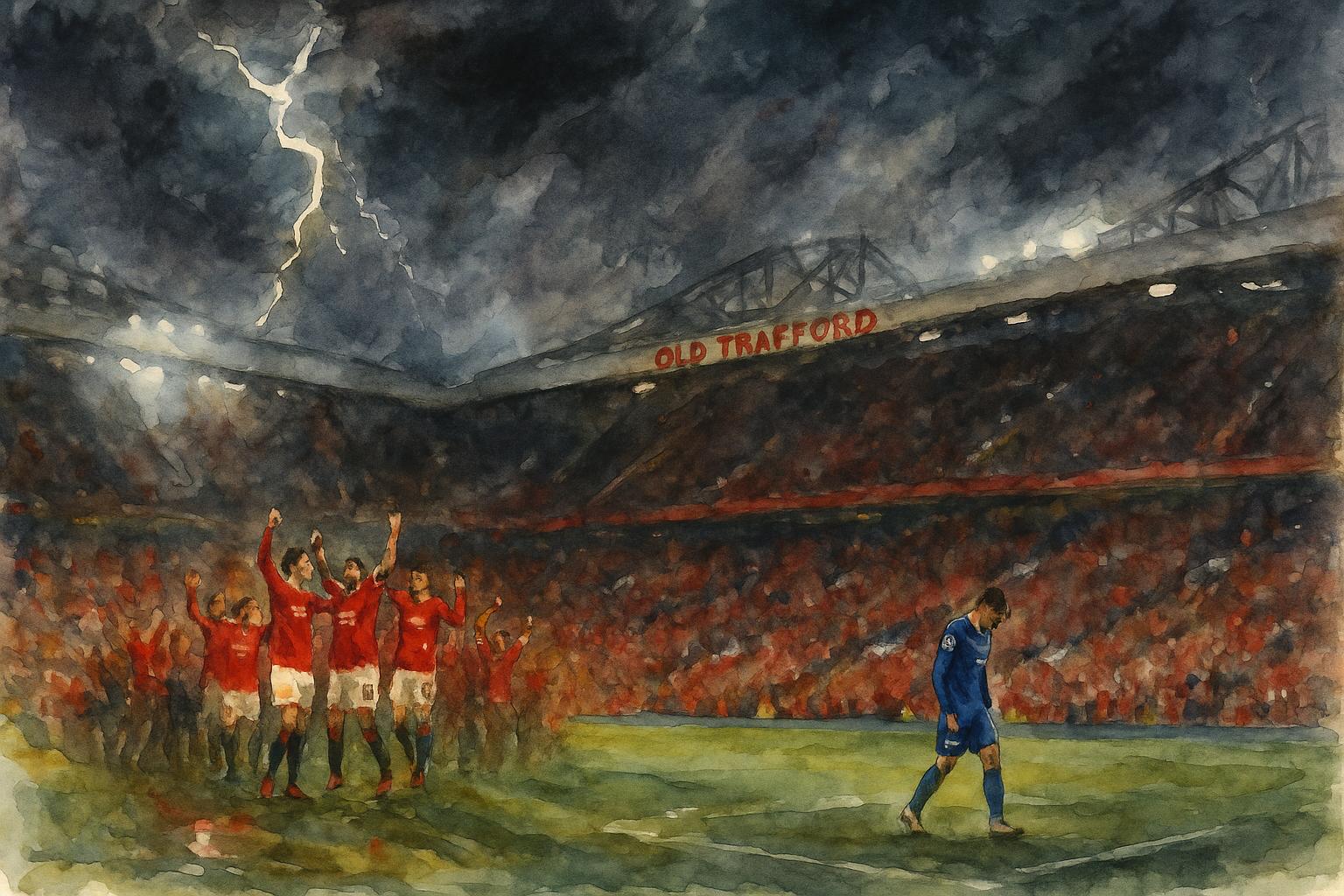Old Traffordin myrskyinen ilta Manchester Unitedin voitonjuhla ja Chelsean romahdus
The rain at Old Trafford wasn’t just about the weather—it became part of the story, a backdrop that made the clash between Manchester United and Chelsea feel mythic. What should have been a balanced Premier League duel quickly spiraled into a night where control, chaos, and destiny intertwined.
A Red Card That Changed Everything
Only minutes in, the direction of the match shifted. Bryan Mbeumo’s burst through Chelsea’s defense drew Robert Sánchez into a reckless collision. The referee’s decision was immediate and emphatic: a red card. Suddenly, Chelsea’s plan was gone, their structure collapsed before the match had any real chance to settle.
The response was instant: Old Trafford, alive with passion, embraced this turning point as if the storm itself had delivered it. For Chelsea, though, it was disaster written into the night.
A Rookie Keeper Thrown Into the Fire
In stepped young Filip Jörgensen, thrust into circumstances no keeper would envy: away from home, against United, in heavy rain, with an expectant crowd and an opponent already sensing blood. What followed wasn’t a gradual learning curve—it was a relentless baptism under pressure.
Bruno Fernandes, as if Born for Nights Like This
Just minutes later, the inevitable happened. On the 14th minute, Bruno Fernandes struck. His goal carried more weight than just the scoreline. Confirmed after a tense VAR delay, it was a declaration—United weren’t just winning, they were taking over the atmosphere itself. Fernandes embodied leadership in motion, every celebration an announcement that Manchester belonged to United on this night.
Chelsea’s Night Gets Even Worse
If losing their goalkeeper was a blow, losing Cole Palmer was a deeper cut. His injury removed Chelsea’s brightest light. Without him, their attack dulled instantly, leaving the visitors looking increasingly fragile under relentless pressure.
The Game Slips Away
By the time United added a second, there was no real suspense. The rain, the roar of Old Trafford, the silence of Chelsea’s soaked traveling faithful—it all underscored the inevitability of the outcome. United weren’t just ahead; they were asserting a narrative of dominance.
More Than Just a Match
What makes nights like this linger isn’t the scoreline alone. It’s what they symbolize. For United, it was conviction—proof they can still harness something primal, something commanding. For Chelsea, it was a mirror reflecting cracks much deeper than tactics. Losing one player or one match is explainable. But losing rhythm, resilience, and belief? That’s more troubling.
This was a night about identity and resilience, about how some teams rise in the storm and others lose themselves within it. United emerged with claws sharpened. Chelsea, however, walked away overshadowed by questions that go beyond the pitch.
- How do they rebuild confidence after repeated blows?
- Where is leadership when the structure collapses?
- Can this group define a new style, or will it continue dismantling itself under pressure?
Because football, at its heart, is not just played in ninety minutes—it’s lived in moments like these that redefine direction. Manchester United made theirs count. Chelsea must now figure out what comes next, before the storm writes the rest of their story for them.
